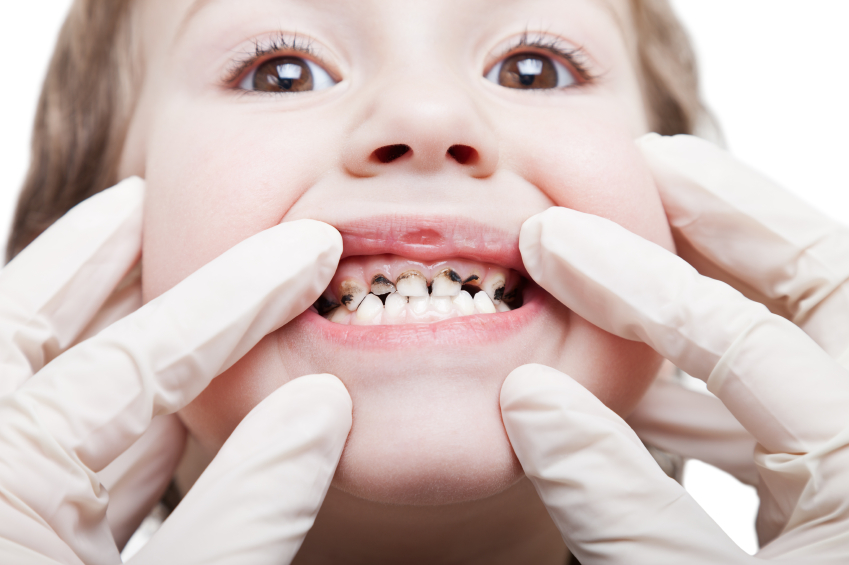KEEP YOUR BABY CAVITY FREE

Baby teeth are necessary for chewing, speaking and smiling. They also serve as place holders for adult teeth. If the baby teeth are infected or lost due to caries or trauma; the child may develop poor eating habits, speech problems, poor growth and development of jaws which may also cause damage and mal-aligned permanent teeth.
DO'S
1. Initiate oral hygiene even before the first tooth erupts.
2. Wipe baby gums with a clean gauze or a soft cloth after each feeding.
3. Exclusive breast feeding is recommended for baby up to 6 months of age.
4. Include milk, cheese etc. in the diet for your child. They are which sources of calcium and casein which help in remineralization and prevention of caries.
5. Feed only plain water in milk bottles if the baby has the habit of sleeping with bottle in mouth.
6. Begin brushing your child’s teeth as soon as the first teeth erupt in the oral cavity.
7. Initially use only a smear of non-fluoridated tooth paste for brushing baby teeth.
8. Fluoride tooth paste in a pea size amount can be used for cleaning, if the child has learned to spit and not to swallow the paste.
9. Always supervise the child’s brushing.
10. Train your child to use dental floss for cleaning interdental areas.
11. Encourage your child to brush twice daily, especially after a meal and before going to bed.
12. Inspect your child’s teeth and gums once in a while. Initial sign on the tooth surface.
DONT'S
1. Never allow your child to fall asleep with a bottle containing anything but plain water. Milk or sweeteners in juices can cause a specific pattern of tooth decay called nursing bottle caries in infants.
2. Limit exposure to sweet and sticky food in the child’s diet, like candies, cookies, and fruit roll ups etc. Sugar content in these foods may cause tooth decay.
3. Never give your child pacifiers dipped in anything sweet.
4. Do not substitute breast milk or plain water with fruit juices or water with sweeteners. Breast milk is the best and natural source of nutrition for the child. It contains adequate fluoride, calcium and immunoglobulins which is important for the baby’s dental health.
5. Try not to share saliva with baby through common use of feeding spoons or licking pacifiers.
6. Fluoride containing tooth paste should not be used until it is made sure that the child will not swallow it. Excessive fluoride intake causes a condition called Fluorosis characterized by severe discoloration and brittleness of teeth (also bones).






